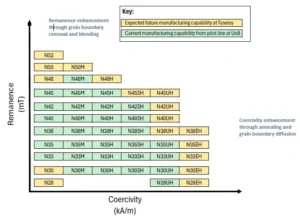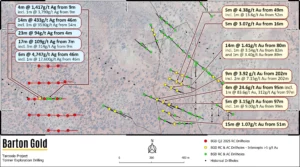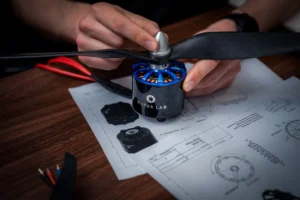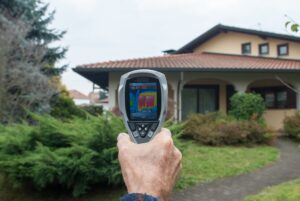Findings highlight the advantages of Adolore’s approach for the delivery of proprietary gene therapy directly to specialized pain-sensing peripheral nerves (nociceptors) that mediates profound analgesia with the potential to address the great unmet need for non-opioid chronic pain therapies
Data further supports the clinical-translational value of Adolore’s proprietary non-opioid analgesics for treating chronic non-cancer pain
These data support the Company’s continuing efforts to progress with IND-enabling studies of ADB-102 gene therapy for the treatment of osteoarthritis (OA) chronic knee pain.
DELRAY BEACH, FL / ACCESS Newswire / June 15, 2025 / Adolore BioTherapeutics (“Adolore” or the “Company”), a biotechnology company focused on developing breakthrough opioid-free gene therapy treatments for chronic pain and neurological disorders, today announced the publication of its manuscript titled, “Biosafety and Efficacy of Kv7 Activating rdHSV-CA8* Analgesic Gene Therapy for Chronic Pain Via the Intra-Articular Route in Mice1,” in the peer-reviewed journal, Molecular Therapy.
Roy Clifford Levitt, MD, Clinical Professor at the University of Miami, Principal Investigator and Program Director of the NIH, NINDS, HEAL Award supporting ADB-102 development for the treatment of chronic knee pain due to OA, and Founder & Executive Chairman of Adolore BioTherapeutics, published biosafety and efficacy data from preclinical studies of Adolore’s gene therapy expressing a human carbonic anhydrase-8 variant peptide (CA8*). In model systems, replication-defective, disease-free, herpes simplex virus (rdHSV) gene therapy expressing an analgesic carbonic anhydrase-8 (CA8*) peptide variant corrects somatosensory hyperexcitability by activating Kv7 voltage-gated potassium channels, produces profound, long-lasting analgesia and treats chronic pain from knee OA. In these studies, we provide the first non-Good Laboratory Practices (GLP) biosafety, efficacy, biodistribution, shedding, and histopathology examination of this rdHSV-CA8* via the intra-articular knee route of administration. Naive mice were examined for clinical safety, distribution of virus across all major tissues, knee histopathology, and analgesic efficacy. We observed no signs of persistent toxicity or histopathology, viral genomes remained where they were injected, and there was no evidence of shedding. Profound analgesia persisted for >6 months without functional impairments. These initial biosafety and efficacy data support further development of rdHSV-CA8* for treating chronic knee pain due to moderate-to-severe OA.
Dr. Levitt, commented, “Kv7 voltage-gated potassium channel activators, like rdHSV-CA8* open these channels and hyperpolarize nociceptors making them less excitable to produce profound analgesia. Kv7 activators are well-known to produce potent non-opioid-based analgesia in many human chronic pain conditions. While Kv7 openers are no longer available due to off-target adverse events related to systemic administration, they have been successfully translated from animal models to human chronic pain conditions. Bolstered by our substantial body of published data, we continue to develop our innovative approach to address the significant serious unmet need for safe and effective locally acting pain therapies to replace opioids. Our preclinical data strongly support continued preclinical development toward an IND and clinical studies of ADB-102.”
The Company’s lead development program for the treatment of chronic pain in knee osteoarthritis is fully funded by a UG3/UH3 grant awarded to the University of Miami by NIH/NINDS HEAL program to support all formal pre-clinical GLP/GMP/GCP development work through a first-in-human study of ADLR-1l01 in patients expected to commence in 2026.
1 Levitt et al., Biosafety and efficacy of Kv7 activating rdHSV-CA8* analgesic gene therapy for chronic pain via the intraarticular route in mice, Molecular Therapy (2025), https://doi.org/10.1016/j.ymthe.2025.05.02
About Carbonic Anhydrase-8 (CA8*) Gene Therapy
CA8* (variants of naturally occurring human carbonic anhydrase-8 analgesic peptides) gene therapies are a novel class of neuronal calcium channel inhibitors that activate Kv7 voltage-gated potassium channels and are administered locally and long-acting. Oral small molecule pain therapeutics that activate Kv7 voltage-gated potassium channels demonstrated proven analgesic efficacy before they were removed from the market due to severe adverse events related to systemic exposure and their metabolism. CA8* gene therapy provides versatile dosing regimens and routes of administration, including intra-articular, intra-neuronal (nerve block), and intradermal injection. This non-opioid CA8* mechanism-of-action addresses neuropathic, inflammatory, and nociceptive pain, which applies to a broad range of chronic pain indications and neurological disorders. These conditions include osteoarthritis, lower back, and cancer pain; diabetes and other forms of peripheral neuropathy; as well as rare pain conditions such as erythromelalgia, a heritable chronic pain condition and epilepsy and hearing loss.
About Adolore BioTherapeutics, Inc.
Adolore BioTherapeutics, Inc., is a biotechnology company focused on developing novel therapies for treating chronic pain using a revolutionary intra-cellular replication-defective HSV (rdHSV) drug delivery platform that is disease-free, non-toxic, and permits localized peripheral nervous system delivery of proprietary biotherapeutics. This rdHSV gene therapy technology incorporates an established re-dosing strategy and an excellent safety profile. HSV vectors are known for their stability and prolonged gene expression, providing an excellent basis for the long- term treatment of chronic pain conditions and neurological disorders. Our best-in-class CA8* programs are long-acting, locally administered gene therapies that are opioid-free Disease-Modifying Anti-Pain therapies (DMAPs) designed to treat many forms of chronic pain, epilepsy and hearing loss.
Leveraging its innovative gene therapy vectors expressing CA8* analgesic peptides (ADLR-1001), Adolore is currently advancing two preclinical development programs: ADB-101 for the treatment of patients’ chronic pain caused by erythromelalgia, an orphan disease, and ADB-102, their lead program for the treatment of patients with chronic pain caused by knee OA. Based on substantial compelling preclinical data generated to date, the Company is progressing these programs toward IND filings and first-in-human clinical studies. Adolore has two additional programs: ADB-104 for Drug-Resistant Refractory Focal Epilepsy and ADB-105 for Acute Severe Hearing Loss.
For more information, visit adolore.com.
Forward-Looking Statements
To the extent, this announcement contains information and statements that are not historical, they are considered forward-looking statements within the meaning of the federal securities laws. You can identify forward-looking statements by the use of the words “believe,” “expect,” “anticipate,” “intend,” “estimate,” “project,” “will,” “should,” “may,” “plan,” “intend,” “assume” and other expressions which predict or indicate future events and trends and which do not relate to historical matters. You should not rely on forward-looking statements because they involve known and unknown risks, uncertainties, and other factors, some of which are beyond the control of the Company. These risks and uncertainties include but are not limited to those associated with drug development. These risks, uncertainties, and other factors may cause the actual results, performance, or achievements of the Company to be materially different from the anticipated future results, performance, or achievements expressed or implied by the forward- looking statements.
Investor Relations Contact
Paul Barone (215)622-4542
pbarone@adolore.com
SOURCE: Adolore Biotherapeutics, Inc.
View the original press release on ACCESS Newswire

















